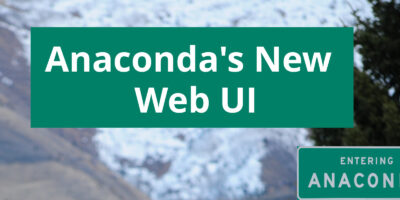This is a part of Fedora Council Elections interviews series. This is an important election, as two candidates will be selected as the Elected Representives, seats which carry full membership in our new top-level leadership and governance body.
Voting is open to all Fedora contributors. The elections starts on November 18th and closes promptly at 00:00 UTC on November 26th.
Please read the responses from all five candidates and make your choices carefully:
- Rex Dieter
- Haïkel Guémar
- Michael Scherer
- Pete Travis
- Langdon White
Feel free to ask questions of the candidates here or elsewhere!
Interview with Michael Scherer (misc)
What is your background in Fedora? What have you worked on and what are you doing now?
My background is rather classic. I started as a user of the distribution while contributing to others projects, mostly because I wanted to play with SELinux and some java stuff which was not integrated by the distribution I was using at the time. As I was helping during free software events in Paris and France, I was already well connected to the local Fedora community, having done joint booths and this kind of things along the years. Then I started to report bugs and to help with testing on stable releases. As I had a packager background, I later decided to make reviews and do a few packages, sponsoring a few people. I also served for 1 year on the board. Now, I am more busy so I stopped being as active as before, but basically do the same things.
What is your vision for Fedora? Where should we be in five years?
IT is a domain that move too fast for me to have any kind of credibility on a 5 years time frame. Yet, if I had a magic wand, I would use it to have Fedora becoming the obvious operating system for a free software hacker, either directly or with downstream. And to me, this include offering a modern and secure desktop, robust and pushing free software movement as a whole. But that’s not very original, as that’s what we already aiming and already have.
Another part of the vision also take in account what I consider as threat to the community. I think that others distributions are not a threat, far from it, so we should not compete against them but collaborate more. Having people part of 2 communities, going to different events, or others ways would be beneficial. After all, the ideas of the council was championed by Christophe Wickert after discussing with Mageia folks, and Debian use fedmsg due to a presentation of Aurelien Bompart while a debian hacker was present in the assistance during Distro Recipes. The systemd project also show that inter distributions collaboration is possible and helpful.
However and to go back on the topic of threat and challenges, I see Apple and the rise of numerous SaaS companies ( Google to name one ) to be more worrying because they push ideologies that are detrimental to us and the free software movement in the long run. For example, the centralization of services in the end of a single provider who broke interoperability several time and who keep code for himself, or the use of patents to stifle innovations, etc. That’s all philosophical positions that have very practical repercussions to us and free software as a whole, and where we should do something.
So while pondering about this, I think that we should not compete only on the technical side, but also put a huge focus on external communication to have a consistent and compelling story. For example, the keynote of Matthew Garrett during Guadec this year, where he spoke about privacy and the desktop, was inspiring. In turn, this requires making Fedora more welcoming for non technical contributions to attract people that can help us achieve this goal.
So maybe Fedora Workstation could be one of the incarnation of this vision, a system that respect users privacy and take it seriously, which is easier to do as we do not have a clear conflict of interests, unlike the aforementioned companies. The same goes for Fedora server, which I hope would help more people to host their own infrastructure, instead of moving everything at the same place. Doing this on the technical level is a good first step, but we also need to take in account the non technical aspect, and for that, we need to have a more diverse community and work on the communication side.
What does it mean for Fedora to be successful? What is “winning” for our project?
Fedora by itself is a project based of openness and community, so one of the definition of winning for Fedora would to have others people following the lead of the project and reuse and enhance the ideas and principles. As we push for the mantra of upstream first in Fedora, having a vibrant and diverse community of users and contributors is winning for us and for upstream. In practice, both objectives are quite fuzzy, especially since we do not all have the same priority nor the same vision on how to achieve our shared goals. So I guess winning for Fedora would be to make progress, despite and thanks to the difference in community. The Fedora.next change is a step in the right direction, permitting to each work-groups to have different deliverable, tailored to their specific goals and visions.
Otherwise, I guess having the magic wand I spoke in the previous question and using it as described would be a win. ( I however do not think we should pursue research in free software magic for now ).
What are the most pressing issues facing Fedora today? What should we do about them?
From a high level point of view, I think we have a lack of balance when it come to contributions. I perceive a huge implicit emphasis on being a packager, and this skew the demographics of the community and the resulting products. I tend to think that a good product requires input and work of a wide range of people from documentation, designers, QA, translators to name a few. And to fix that, I think the council is a first good step in the right direction. Another proposal would be to overhaul FESCO to be more diverse. For example, having formal representatives of i18n, QA or rel-eng as in the readiness meetings was a idea that was discussed around, and this could send the clear signal that those groups are important. But that’s just a discussion we had in the past, and we should first agree that there is something to improve before improving it.
On a more lower level view, I consider the FPC to be currently in crisis due to the lack of volunteers. In turn, this result in the burnout of the existing members, and this in turn become a bottleneck, resulting then in issues in packages due to lack of guidelines, and lot of bureaucracy. Being a reviewer, I am all for
having more guidelines and guidance to ensure the quality of the distribution, but the current process do not seems to be optimal. I do not have a easy fix for that, and I am just seeing the consequences without being involved, so the issue is likely more complex. I would first discuss around with people to gather their points of views, find the pain points and proposes ideas to solve them in a way that gather some consensus.
Another concern I hear from time to time is that rel-engineering is critically understaffed. While all parts of all free software projects are understaffed ( since we have always have more ideas of what to do than time to do them, not counting bugs), rel-eng seems to be blocked on various things due to the lack of people. However, I know that work to fix this is underway since a few months, from Ralph working on getting a staging setup of koji to help testing things to Dennis having started meetings around rel-eng to scale himself. I also put big hopes on having vagrant in the distribution, as we will likely soon be able to leverage it to ease testing by the community on the infra side.
What are your interests and experience outside of Fedora? What of those things will help you in this role?
My experience are the one of a sysadmin, which is my day job, and a developer, who was my previous day job. I do not really think this will help me so much for the council except the fact it give me street creds in the community due to its technical nature. I was also part of the founding members of the fork of a distribution, having contributed to set it up from 0, both on the infrastructure level and on the governance level. And the fact that the distribution still run fine despite my departure for personal problems show that we did the right choice to sustain it in the long term I am also interested in the security and privacy realms, for professional and personal reasons.
I do not think my others interests are important or relevant enough to disclose in the context of this interview.
Care to share a screenshot of your Fedora desktop?
I would rather not, I consider that what appear on my screen is private for me, so I want to keep it this way.
Have you used Fedora in a cloud or server context?
I use it as a server in a regular datacenter, hosting various personal things ( VPN, XMPP server, etc ), and I do use it to build static websites at work. I guess that count as cloud context, as the installation is fully automated at a various cloud providers and various hosting issues forced me to redeploy on a regular basis ( ie, ephemeral instances ). I appreciate to have the latest software to be present for me to use.
What did you do on your last vacation or weekend off?
My last vacation were in North America and I was visiting North Carolina to see a friend of mine. I could speak of my last weekends, but they were all exceptionally filled with free software events since my return from my travels and not representative of what I usually do.
What do you want to achieve as member of council?
I want to make sure the council is properly started and running fine. The first years of any new organization are usually a bit rough, as we discover various problem that are unplanned, and I want to be here to help. As the others questions already touched, I already went to this exercise once, so I guess I can at least help to avoid some pitfalls that I already faced. However, i also think I will be able to help, wether I am eleected or not, so I see the questions to be a bit misleading.
Anything else voters should know?
For the sake of transparency and disclosure, I am currently being employed by Red Hat as a system administrator in the OSAS team, who is in charge of helping communities be successful. However, being part of the board ( fedora or anything ) never was something asked by my employer, even if I am quite sure the experience I got while doing this for several community did help me to get my current job. So while I am employed by Fedora’s primary sponsor, and while I have a lot of insider ( and outsider ) contacts, I am also just a volunteer for this and try to keep in mind the interest of the external community. I still think it would be beneficial to get a more diverse set of sponsors around the project, but this interview is long enough without me adding more on the topic 🙂
How do you envision improving collaboration with downstream communities (ie: CentOS) ?
Besides EPEL ( who is a obvious answer on how we can collaborate with Centos ), and coming from a infrastructure background, I tend to see infrastructure based solution and collaboration in priority, so mostly sharing the software and making them easier to reuse. There is lots of possible interaction, like having some integration with fedmsg ( as Debian did ). Another potential ideas would be around SCL, as that’s a topic that often come when I talk to people about Fedora and Centos so having them as a joint project ( Fedora taking care of the innovation around it, and Centos being a downstream serving them ) would be a idea. Another potential area for collaboration would be having joint events, specially in the context of Fedora Server.
For non Centos downstreams, getting their feedback in a more official way would be a good start. While we have spins and remix, I do not think we often take in account their needs when deciding something. There is however a case to be made of avoiding fragmentation and pushing everybody to be under the Fedora umbrella in order to share the load and make the project more resilient.
Another often ignored part of downstream is for software that we develop as part of Fedora, who are not that often reused outside of it. Various infrastructures projects come to mind, and finding why they are not not compelling or reused would be beneficial.





